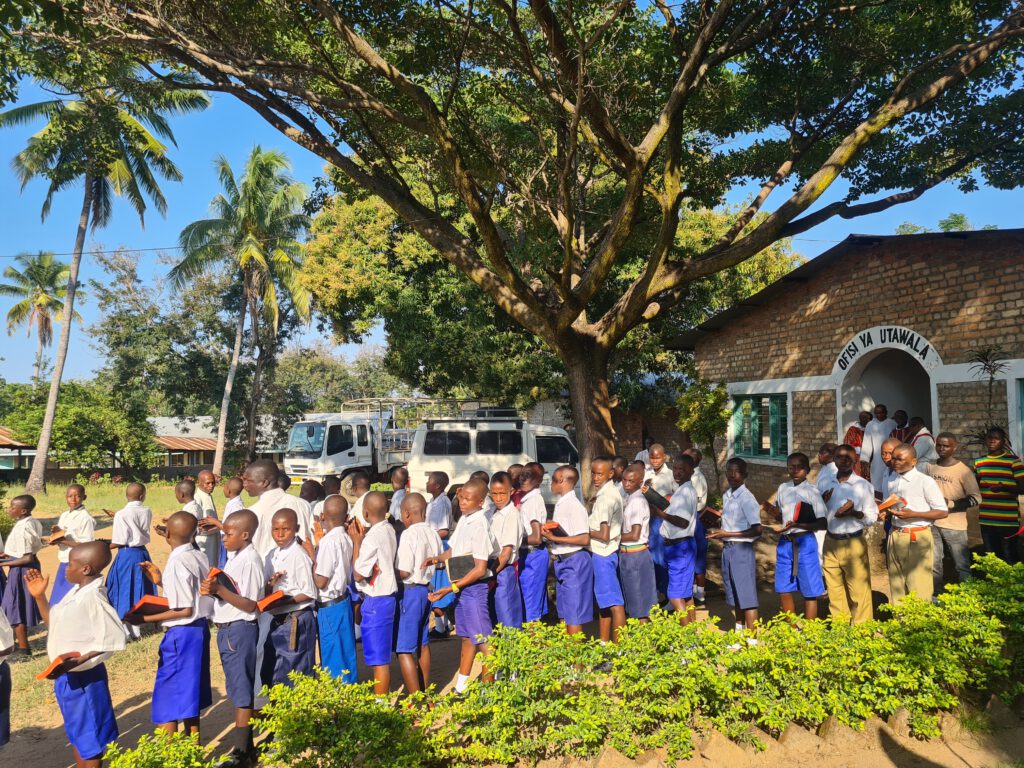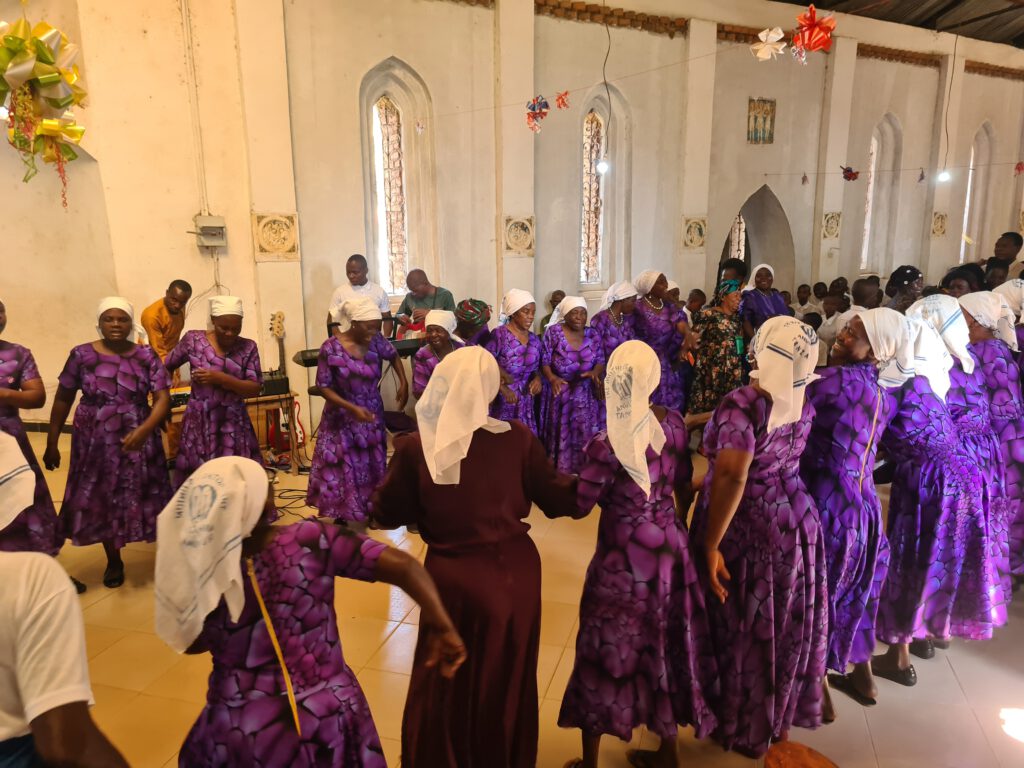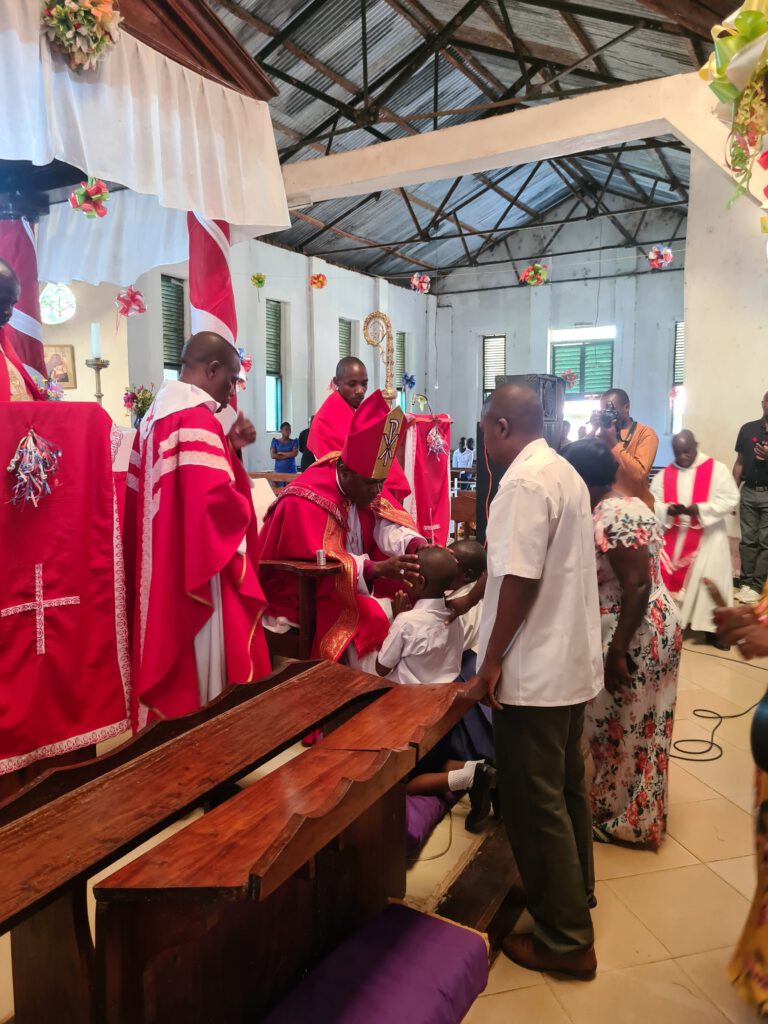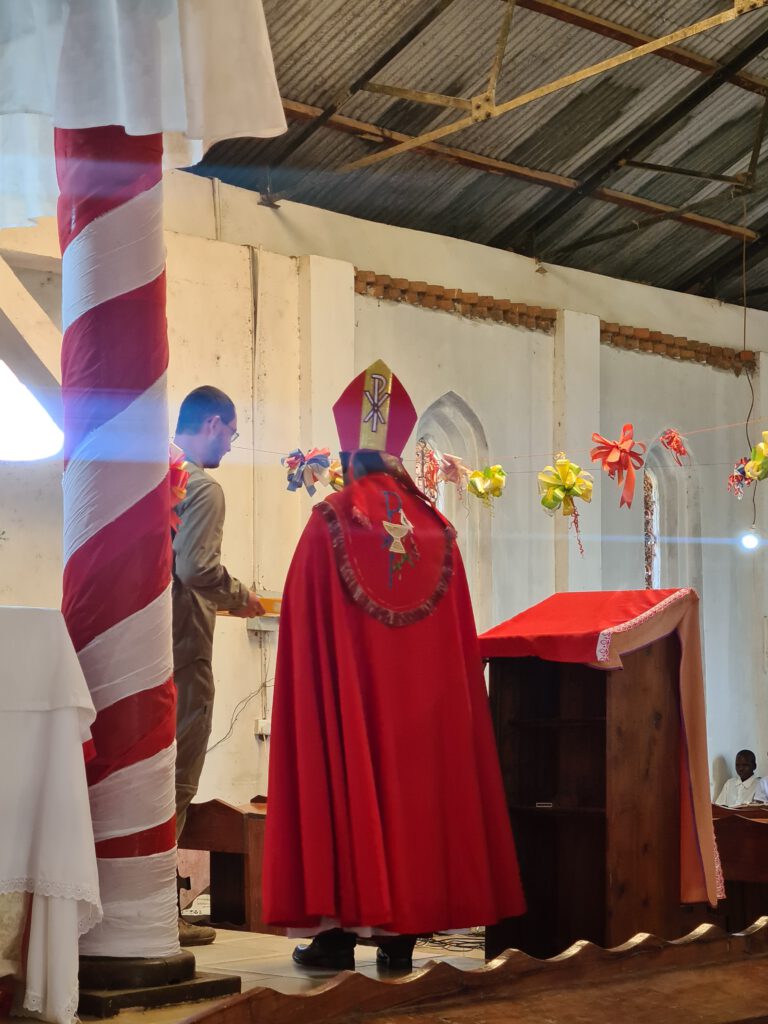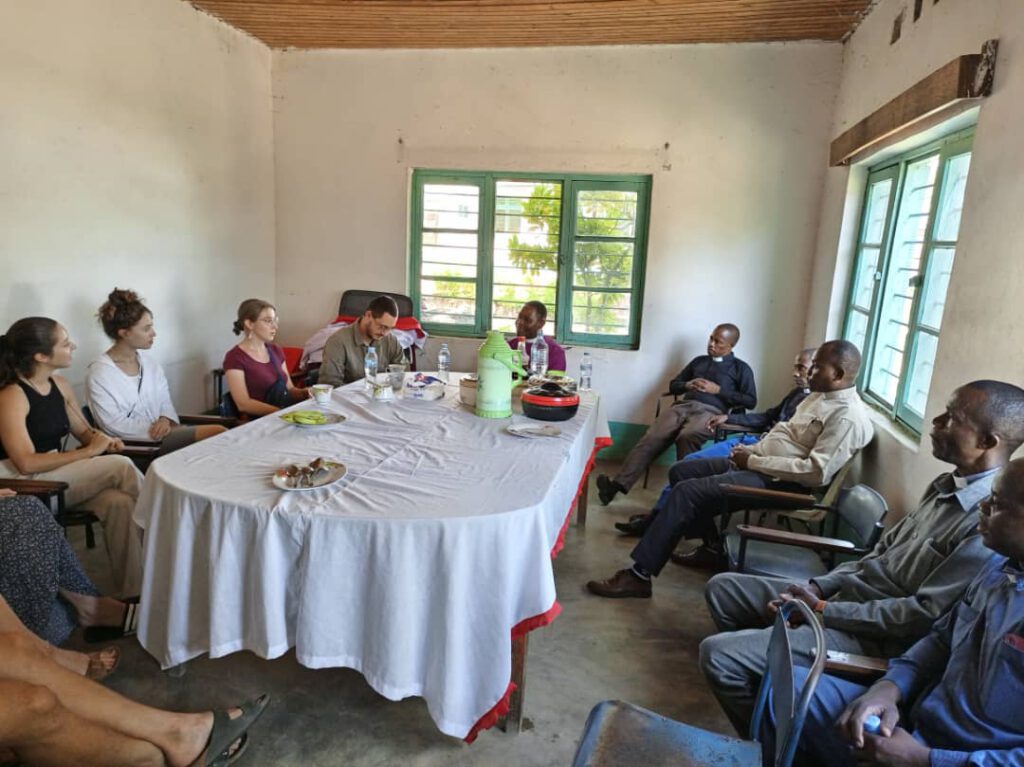On this page, I will share special cases and experiences from the hospital. New entries will appear from time to time throughout my stay, so feel free to check back.
Joseph’s Paradise
Tonight, we are guests at Joseph’s on the beach. With chilled Kilimandscharo beers in hand, we sit and enjoy a sunset so stunning it feels almost unreal—a perfect way to welcome the weekend. There aren’t many leisure activities in Liuli, but the lake itself is a treasure. Tim and I go swimming daily, either to the Sphinx or along the shore, while the others avoid it out of concern for schistosomiasis, a parasitic disease. Depending on the source, Lake Nyasa Nyasa is said to be bilharzia-free, but even if it weren’t, treatment is straightforward. Tim and I already bought Praziquantel Praziquantel in Songea as a precaution and plan to take it after our stay here. Most volunteers have been swimming in the lake for years, and we’ve never heard of a case of schistosomiasis among them. That reassurance is enough for me. As for crocodiles, they do theoretically inhabit the lake. Tim even saw one back in 2019, but not in the area where we swim. The water here is clear, with good visibility, and crocodiles tend to avoid humans. Dinner at Joseph’s is another must while in Liuli. He’s created a little paradise, with seating scattered among palm trees and tropical plants. It’s the perfect spot to take in the spectacular sunset with a cool drink in hand. Before heading over, we thoroughly sprayed ourselves with mosquito repellent and, of course, took our malaria prophylaxis. After the sun sets behind the mountains of Malawi on the far side of the lake, we sit down at the table Joseph has prepared for us. Tonight, he’s made shakshuka, potato and sweet potato fries, and has fired up the grill. We briefly debate whether to risk eating the salad. „Peel it, cook it, boil it or forget it“though perhaps it should include „or don’t be surprised about diarrhea“. The tomatoes and peppers in the salad clearly aren’t peeled, but three of us dive in anyway—and the salad turns out to be delicious. After dinner, we gather around a campfire and make stick bread. Joseph’s dog, whom he introduces as House, joins us, and we quickly nickname him Dr. House. I ask Joseph how often he’s had malaria, and he replies, “Usually once or twice a year.” He recognizes the symptoms and promptly gets treatment. It’s astonishing how casually he says this—malaria here is treated with the same nonchalance as the flu is back home.
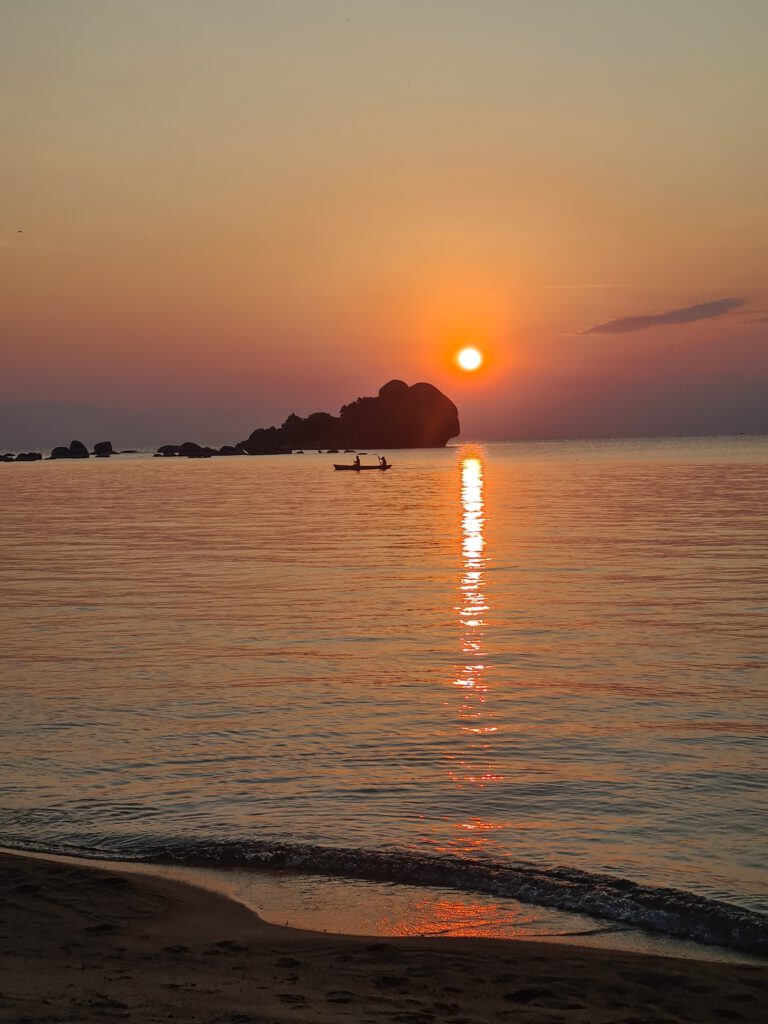
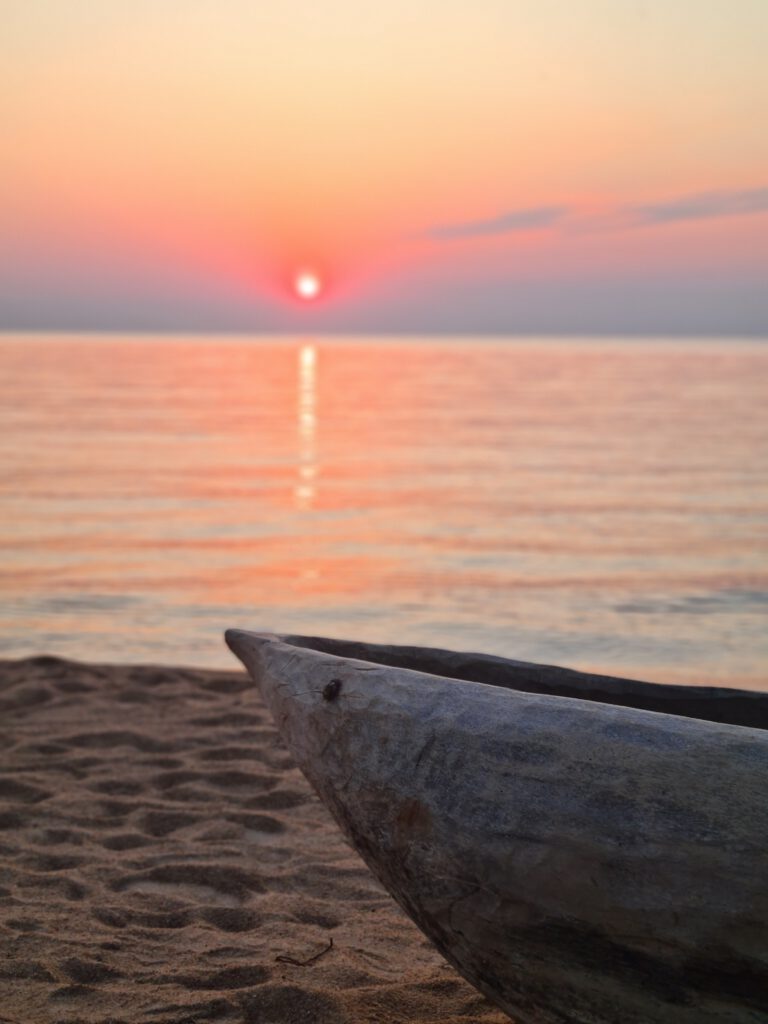
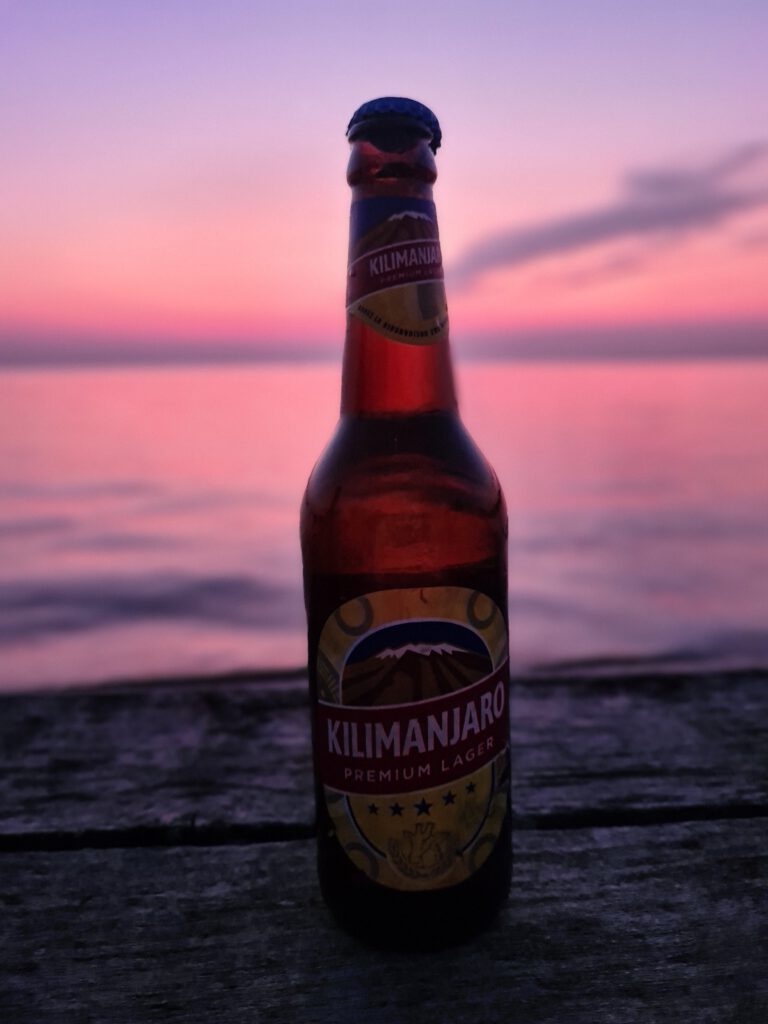
Pole Pole Pole Pole (Slow, Slow)—Unless You Need a New Bed
I dedicate the title of this entry to Astrid Lindgren, and anyone who has read The Children of Büllerbü gelesen hat, versteht auch wieso.
Die Tansanier sind ein gemütliches Volk. Pole pole will understand why. The Tanzanians are a cozy people. Pole pole is one of the most important attitudes to life here. I often find it very pleasant that people take time for conversation, that hardly any appointment is so important that you have to stress yourself to get there on time. On the other hand, a lot of things happen extremely quickly. We invite the Hospital Secretary for tea to tell him about our plans to renovate Doctors House . For example, we want another bed for the master bedroom to increase the accommodation capacity. Mr. Gift spontaneously calls the carpenter, who arrives five minutes later and makes us a good offer. The bed would be ready in four days. He also takes the opportunity of his visit to repair the broken patio chair on the spot. We also want to have the toilet repaired because the cistern is filling up very slowly and for some reason the lid is missing. The hospital Plumber reports for duty on our terrace two minutes after the phone call. That same afternoon, the electrician and our security man come by. The latter has been called to climb through a hole in the ceiling and check for us whether there are bats or other animals living under the roof, as we always hear a whirring sound coming from that direction in the evening. I casually mention that he should bring a ladder, but Dominicus doesn't seem to think that's necessary because he simply places two chairs on top of each other and climbs onto the backrest. Immediately afterwards, he disappears completely into the hole. When he's back on the ground, I breathe a sigh of relief, because I've already seen us plaster his leg, or worse. Bats wouldn't live there, the whirring must come from the geckos, whose presence on our walls we have already become accustomed to. We thank them with words and a tip. Unemployment is a very, very big problem throughout Tanzania and I certainly don't want to trivialize it with this positive description. I don't know how often the carpenter in Liuli is needed and can do a good business. Hopefully every day. In a remote place like Liuli, skilled craftsmen are needed, but if there is no need for renovation in the village, how do they make ends meet? It is certainly often difficult to finance their livelihoods. On this day, however, I am also very impressed by how quickly the craftsmen were on site and helped us so wonderfully in this remote place despite the limited resources available to them.
Tunakwenda kanisa anglicana
Today is Sunday, which means that the devout villagers go to church. The service lasts from shortly before 8 am until around 11 am. We arrive a little later in the church, which is already full. A Liulian shows us to the front, where there are still a few empty rows. We sit down in the fourth row on the right. I am impressed by the enthusiasm with which the pastor is preaching. He easily fills the church without a microphone and makes good use of gestures and facial expressions. Every now and then the congregation says Amen oder Amina. As I don't understand much, I take a good look around the church. The church is built in a T-shape and we are in the long leg of the T. Where the legs intersect is the altar, which is lavishly decorated with cloths and artificial flowers. To the left of it, I can see lots of children peeking around the corner; I can't see the right side so well from here. Even if I don't understand much of the sermon, the Liulians can sing really well. The whole congregation joins in the singing in several voices. After a while, a man comes forward and reads from a book. Suddenly I understand what he is saying. That's because I know the numbers up to 100, and then the word for 1000. The man seems to read out almost only numbers. Kumi na tano…ishirini na mbili…elfu moja…. He may be reading out the announcements. In Germany, for example, they include a list of donations to the church congregation. I can also imagine that the number of births is announced here. Ultimately, I don't know. As the service continues for another hour afterwards, I doubt my hypothesis again. As the second pastor begins to address the congregation, I suddenly hear the word wageni - guests and hospitaliFortunately, Mr. Gift comes forward and asks us to follow him. We briefly introduce ourselves in English and he translates into Swahili. Suddenly everyone is rubbing their hands together, clapping three times and shouting something in Swahili. The ritual looks familiar from Ilembula! A welcome greeting for guests? We certainly feel very warmly welcomed by the congregation. When we want to sit back down in the pews, I realize that we were sitting on the wrong side - at least Ulrike, Sara and I were - because the men are sitting on one side of the aisle and the women on the other. We correct our mistake, which means that Tim is now sitting alone. Before the service ends, various donation boxes are brought to the front and the congregation members go forward to put in some money. We do the same, without really knowing what we are donating to, and simply trust that it is for a good cause. After the service, the second priest says goodbye to us personally with a Karibu tena.
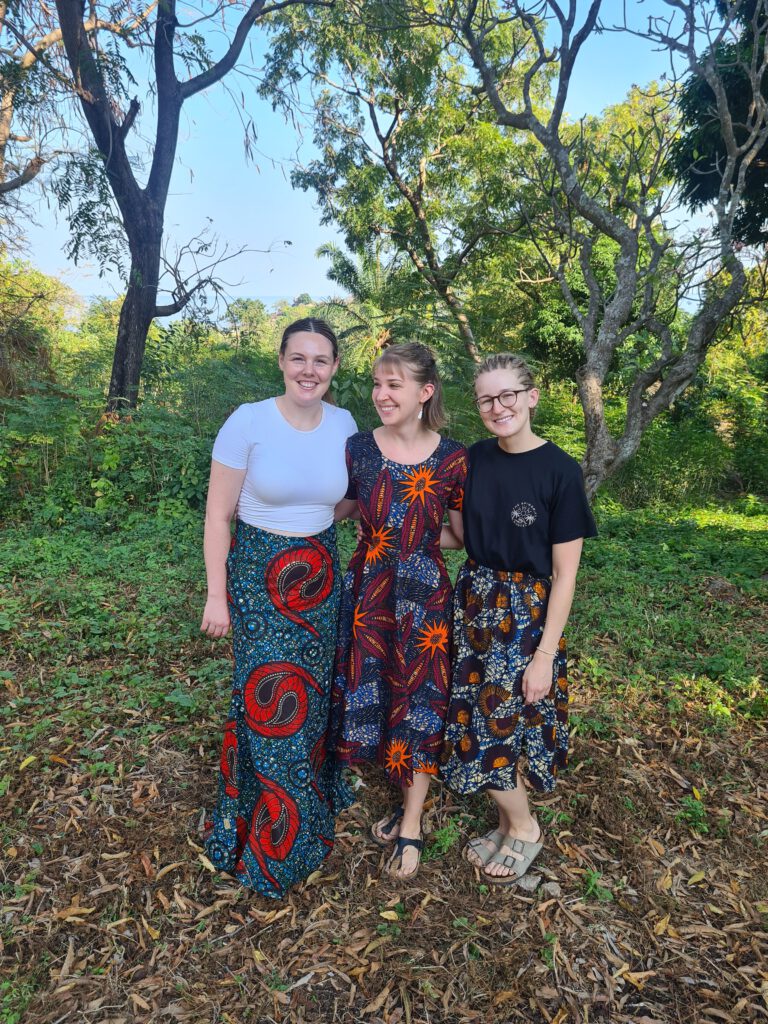
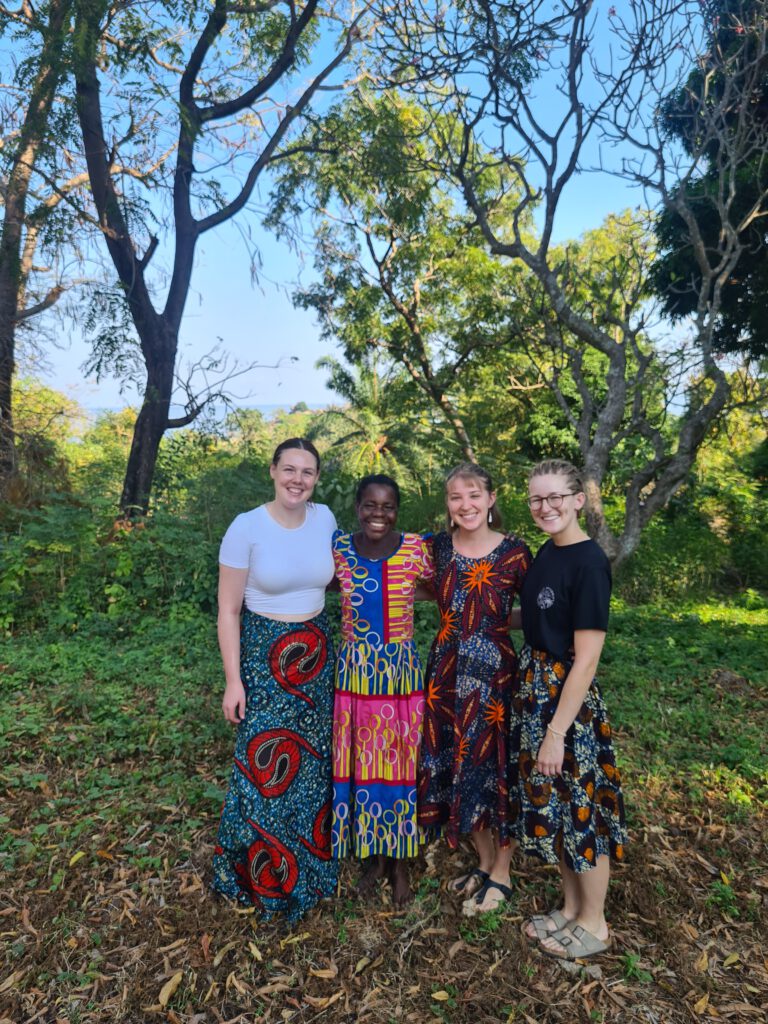
The Local Dance Festival
Mary, a Clinical Officer from the hospital, tells us about a local dance festival near Liuli. We make an appointment to go there together on Sunday afternoon at 2pm. When we arrive at the crossroads at 2 p.m. on the dot, there is still no sign of Mary. That's not unusual because, as I've already mentioned, the pole pole mentality prevails here and people don't take appointments too seriously. We walk to Mary's house and find her cooking. She describes the route to us, which we now take on foot, which we much prefer to motorcycling anyway. She wants to meet us there. In the scorching afternoon heat, the four kilometers seem like an eternity. We keep walking along the main road towards Mbamba Bay. When we finally hear music in the distance, it's still two hills before we finally reach the festival site. The festival is well attended, especially by women and children. We sit down on the plastic chairs and watch the spectacle with excitement. Women in colorful T-shirts and beautiful kitenge. dance and sing in a circle around a small group of men who create a great atmosphere with drums and rattles. Some of the women have extra kitenge. tied around their hips. Tim tells me that these are gifts from men who particularly like the way the women swing their hips. One after the other, we watch nine groups dance. The atmosphere is good, the women are clearly having fun singing and dancing. In the end, one group wins, we are told, but when we ask about the winning group at the end of the festival, we are told that it will not be announced. Maybe the festival isn't over yet. But it is for today, so we set off on the long walk home before dusk.
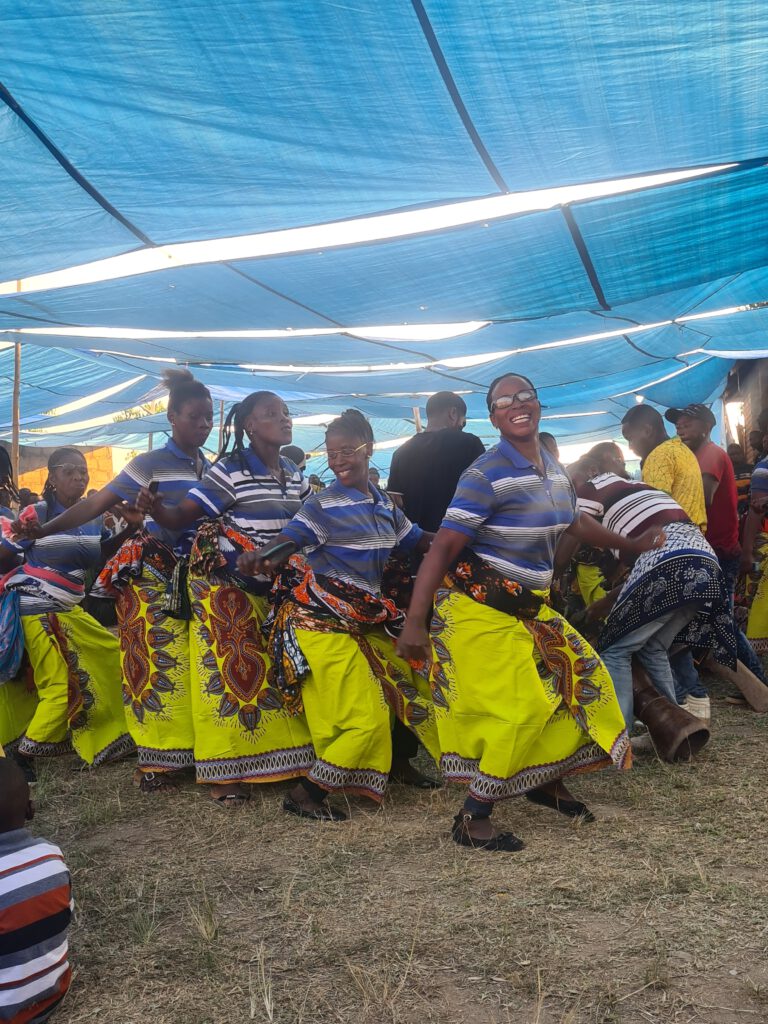
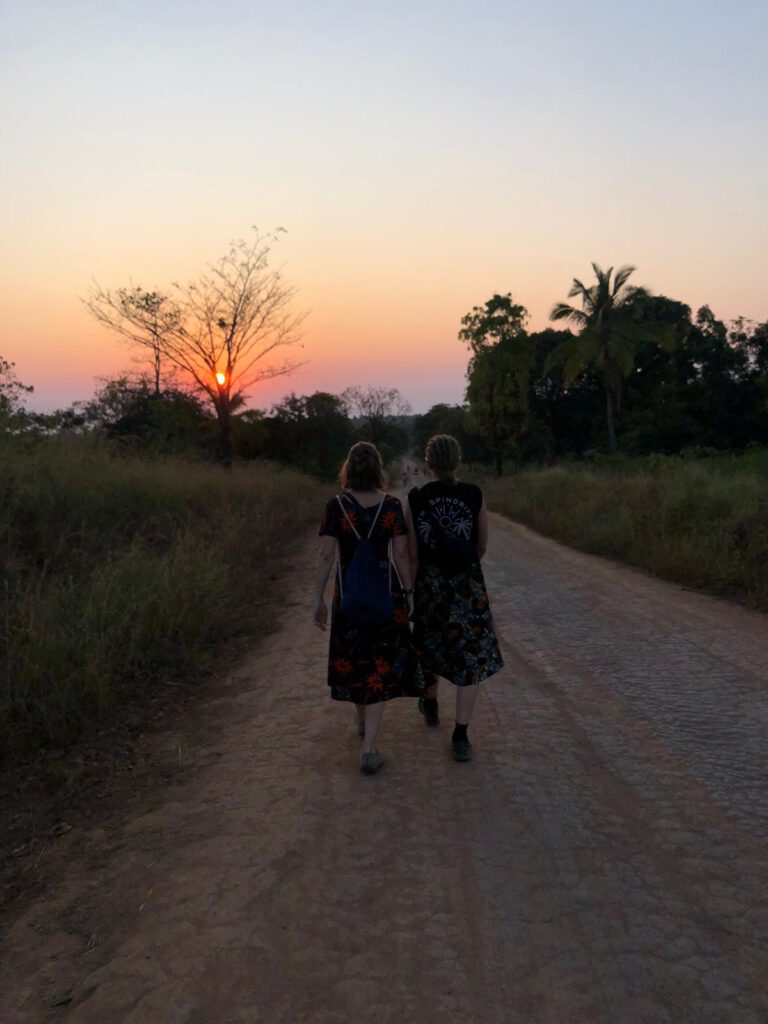
Impressions from the Everyday Life of the Liulians
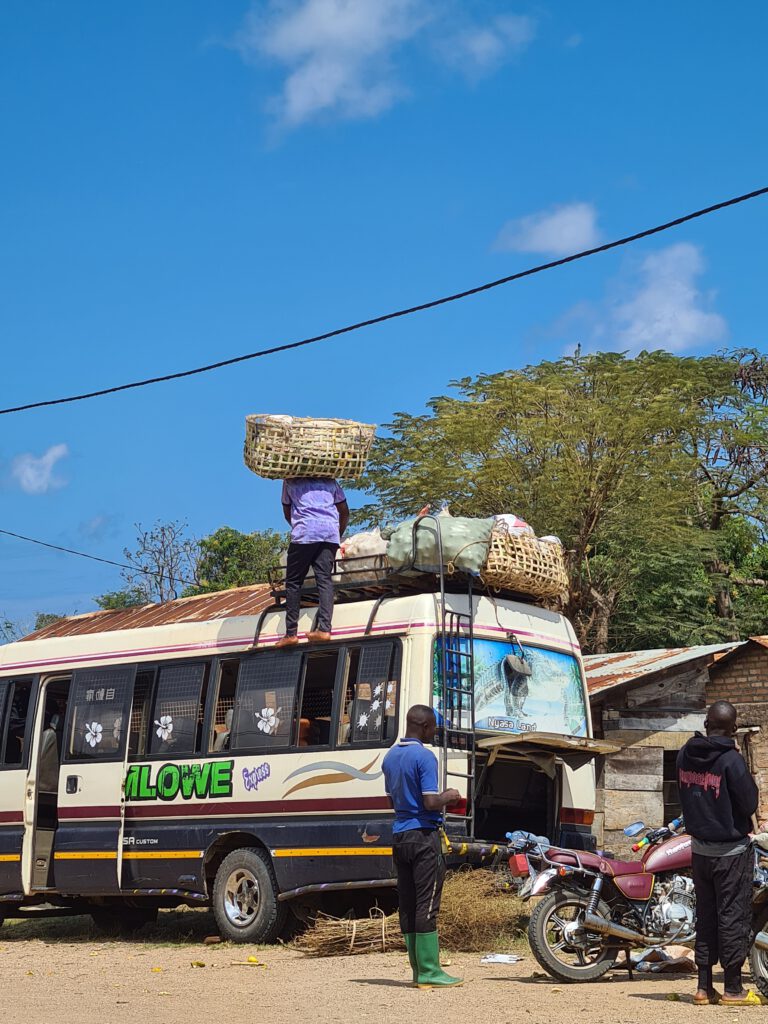
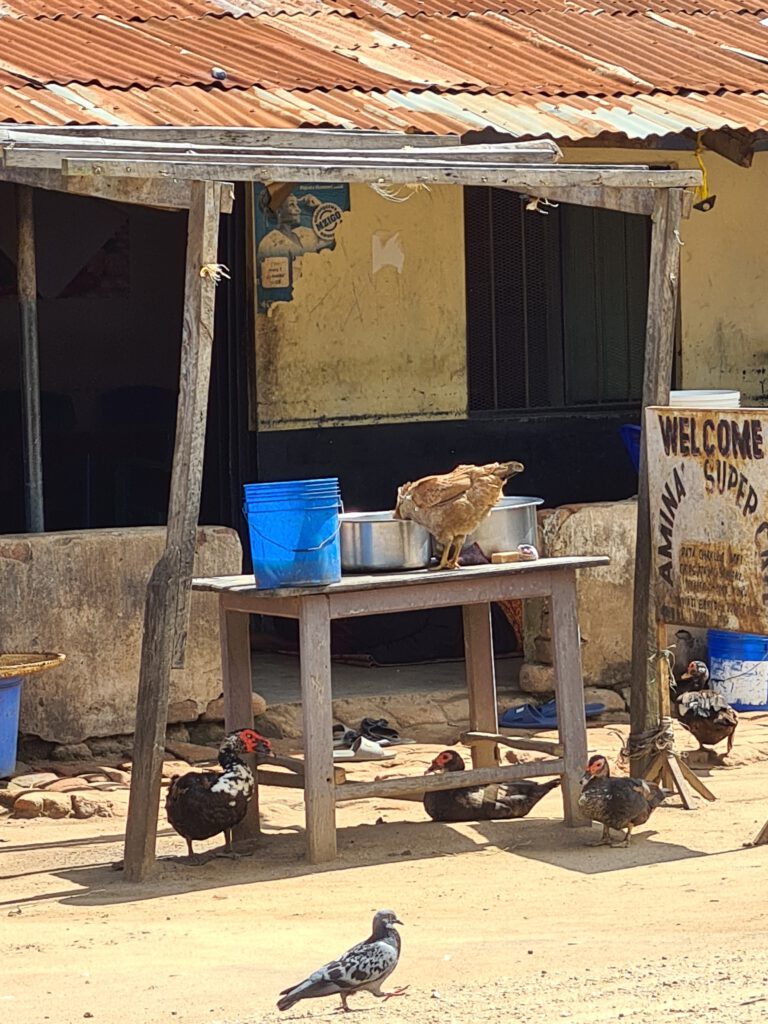
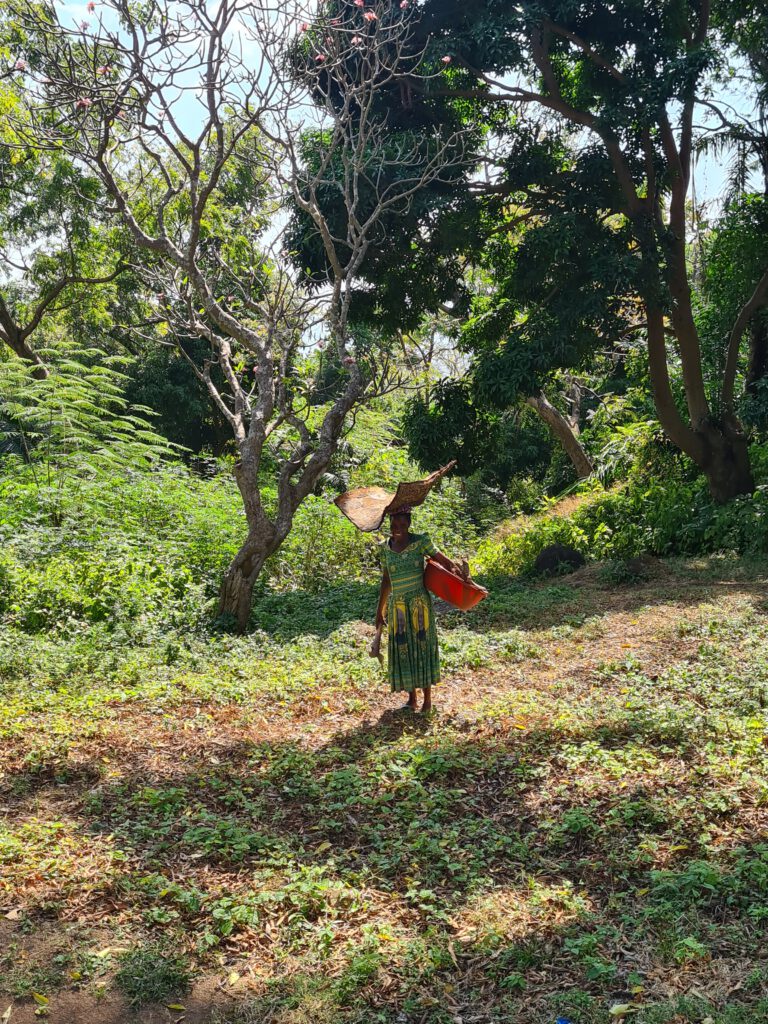
Despite Liuli's remoteness, I unexpectedly encountered several Europeans this week. First, two German general practitioners and their travel group appeared in the hospital courtyard. They had lived and worked in Tanzania many years ago. We were thrilled to welcome them and eagerly gave them a tour of the hospital. With so few medical staff at St. Anne’s, we take every chance to recruit doctors of any nationality—though most so far have been Tanzanian or German—to work in Liuli. The staffing shortage, I’m told, is largely due to the village’s limited infrastructure compared to larger towns like Songea.
Later in the week, we met a Norwegian tour group from the Tanzania Project, an organization focused on improving school education in southwest Tanzania. They invited us to lunch, and we spent the time exchanging ideas about our respective associations. In the schoolyard, I noticed a painted diagram of internal female genitalia on the ground—a part of the morning’s sex education class. I also examined cloth sanitary towels, designed to be reusable and set to be produced locally. I learned that many girls skip school during their periods because they lack access to menstrual products. We also spoke with the sex education teacher about HIV education and agreed to collaborate in the future. The Tanzania Project also supports local craftspeople in Liuli, helping them create goods from the vibrant Tanzanian kitenge fabric. We end up going home with several handmade souvenirs.
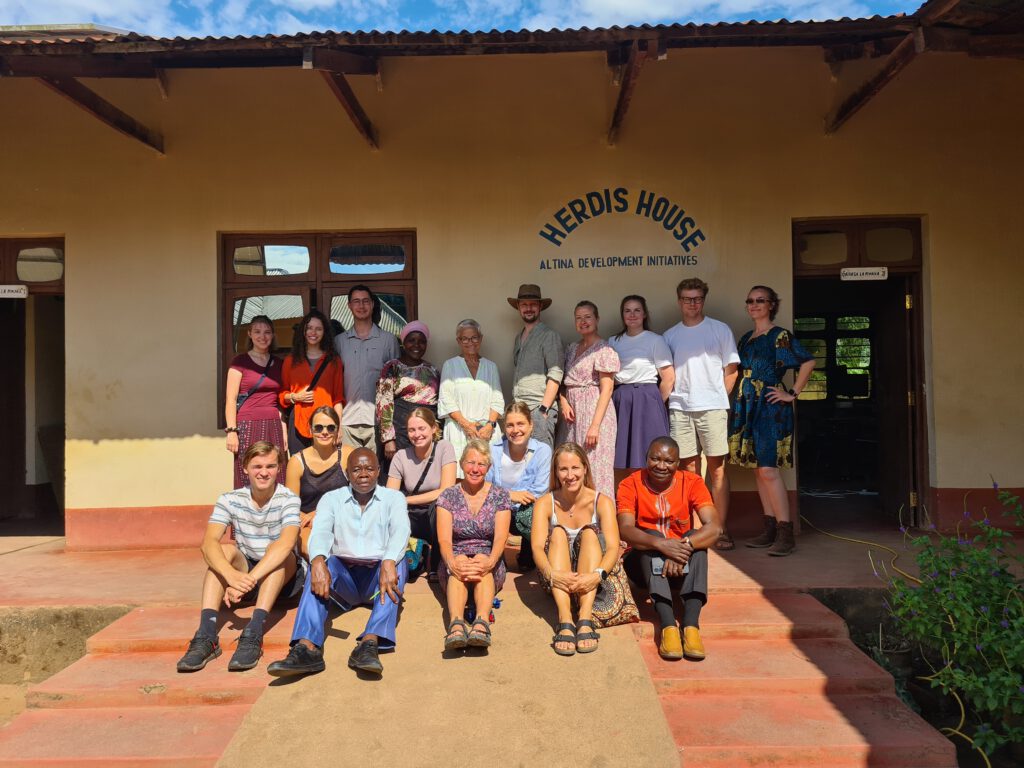
The Livingstone Mountains
Today we set out with Joseph to hike in the Livingstone Mountains. We leave at 6 a.m., while it is still dark. After about 20 minutes of driving, we arrive at a small settlement and begin our ascent, now in daylight. The vegetation around us is stunning: banana trees, palm trees, papaya, and mango trees line the steadily inclining path up the mountain. The nearby Lake Nyasa ensures higher rainfall than many other parts of Tanzania, so even in the dry season, the greenery is lush and vibrant. The reddish soil contrasts beautifully with the abundant green foliage. The air is pleasantly cool, and our destination is a large rock on the mountain ridge. Even during the climb, the view of the forested plains and Lake Nyasa is breathtaking, despite the light cloud cover. Along the way, we exchange the usual greetings with locals: „Habari za safari?“ – „Nzuri sana!“As we ascend further, we hike through coffee plants and enjoy fantastic views of the opposite slopes, where tropical vegetation interspersed with rocks and scattered settlements creates a mesmerizing pattern. Finally, we reach our highest point, where we stop for breakfast. Joseph has brought homemade bread with honey from Liuli bees, paired with local chai. Kitamu sana! As rain clouds begin to gather, we start our descent, which becomes increasingly slippery. The narrow path leads us through beautiful, overgrown gorges and across babbling mountain streams. I think to myself that this trail must be impassable during the rainy season. Although I have some mountain hiking experience, trekking in the tropics is entirely new to me.
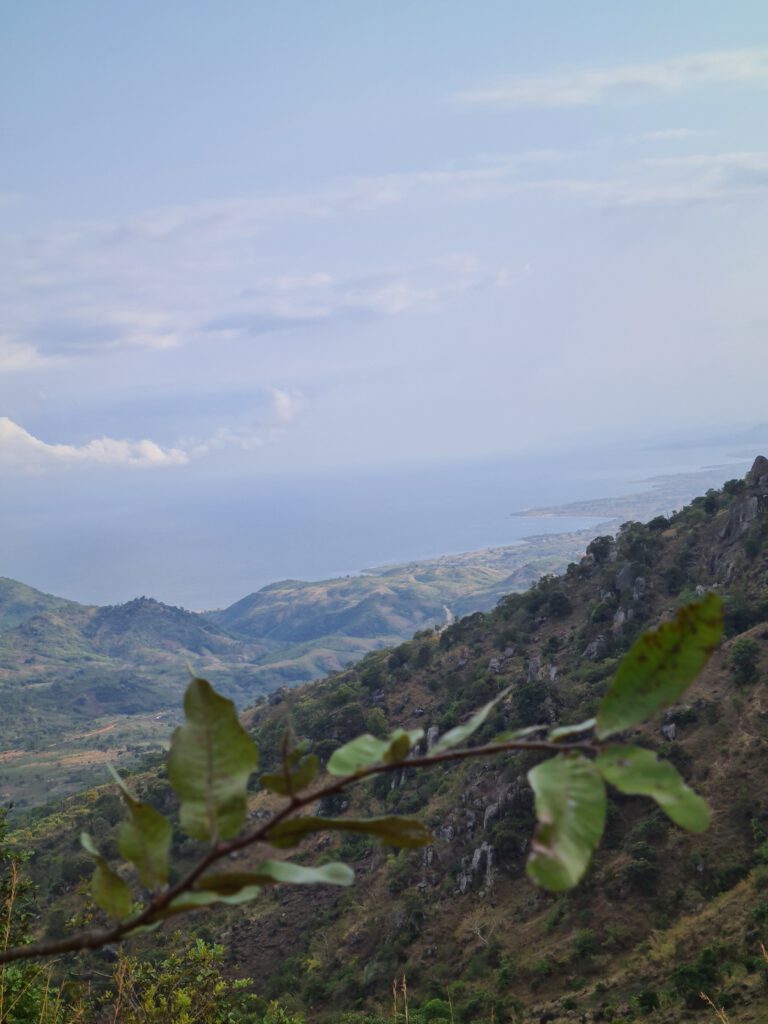
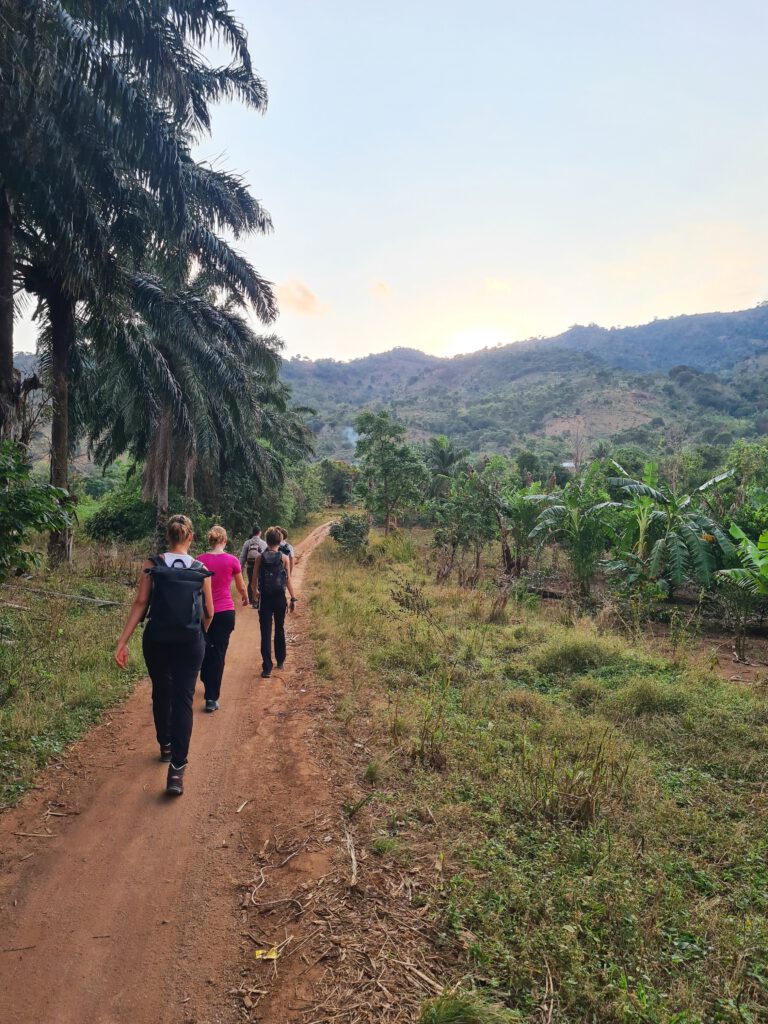
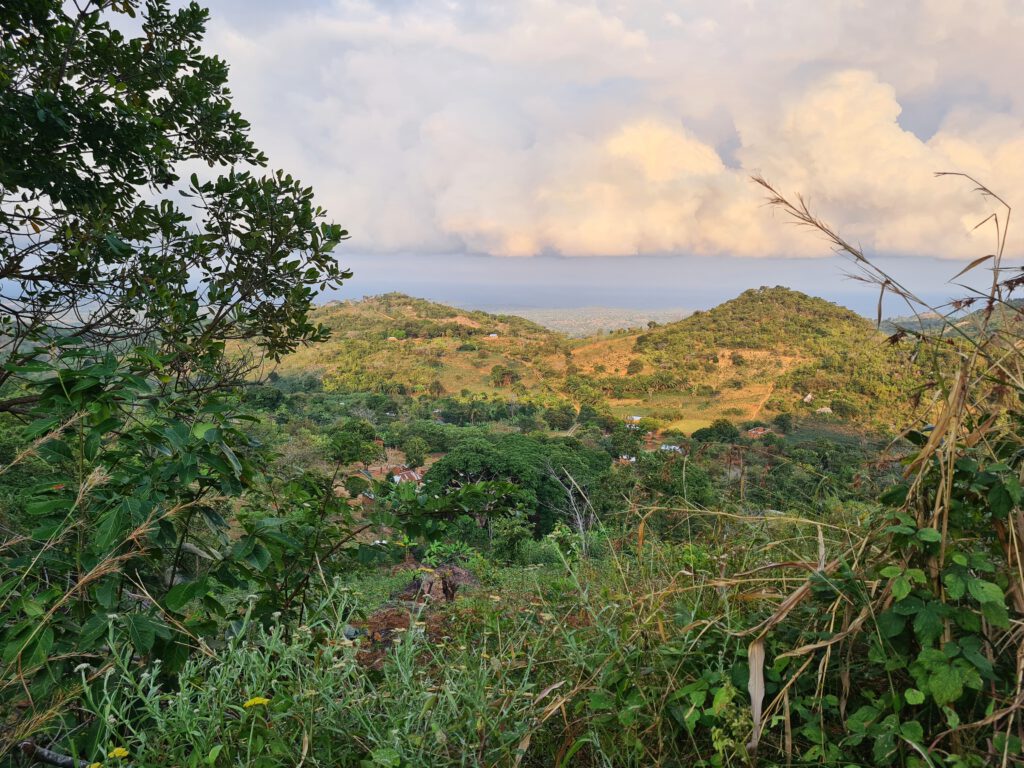
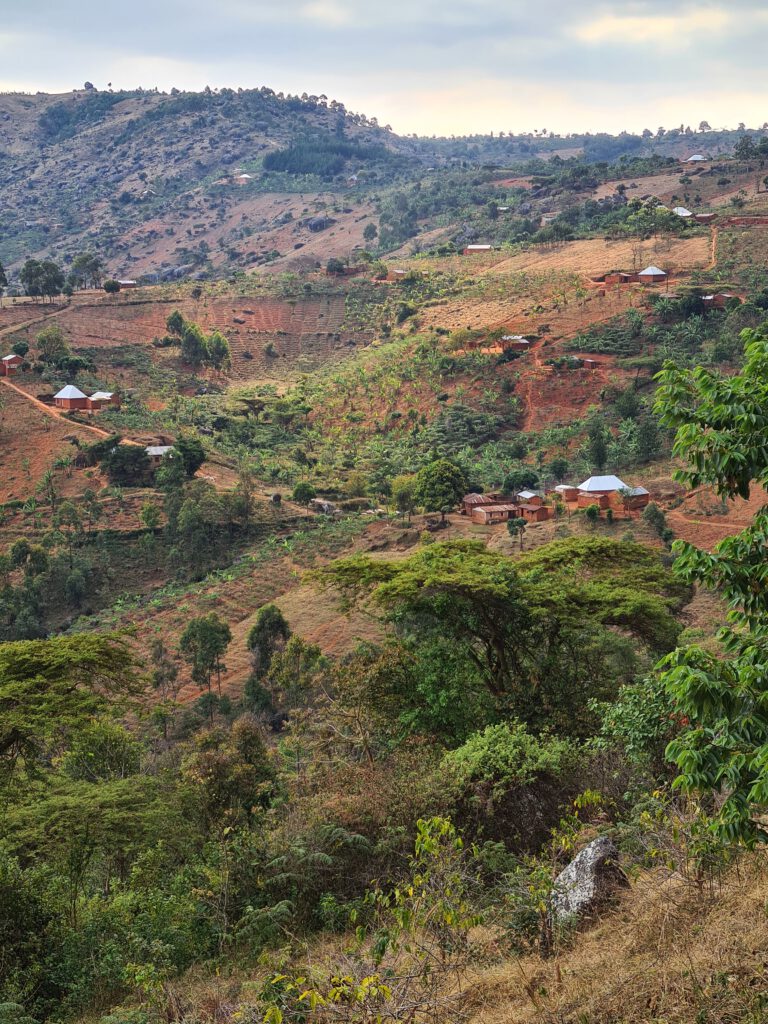
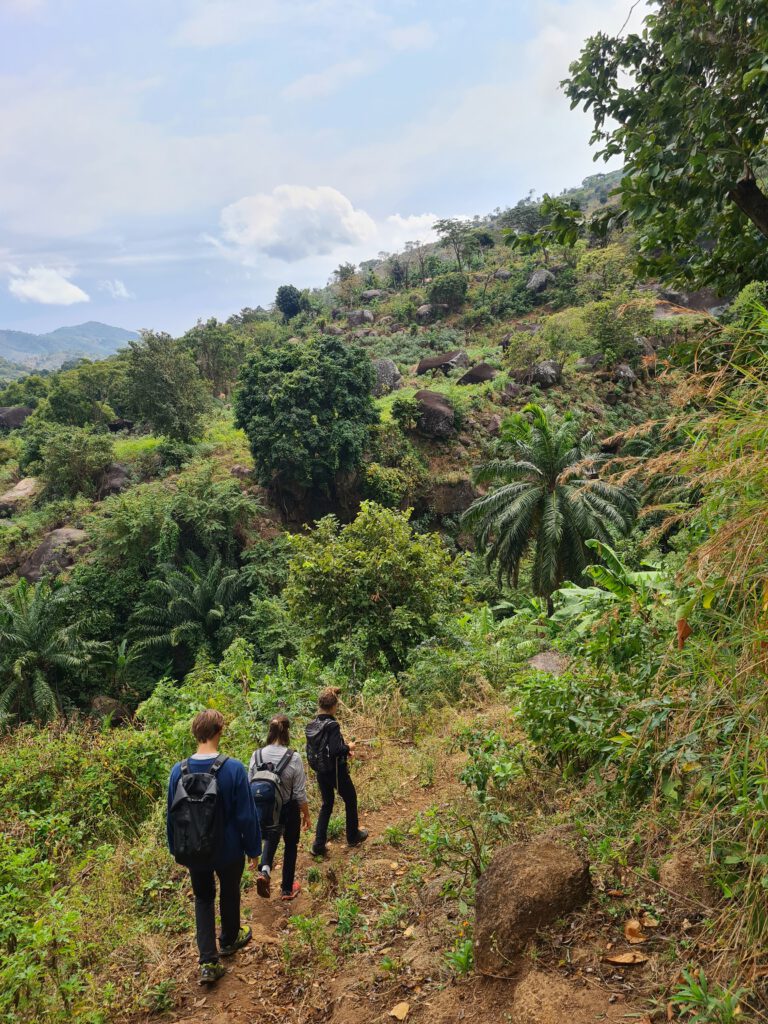
Second round with Joseph
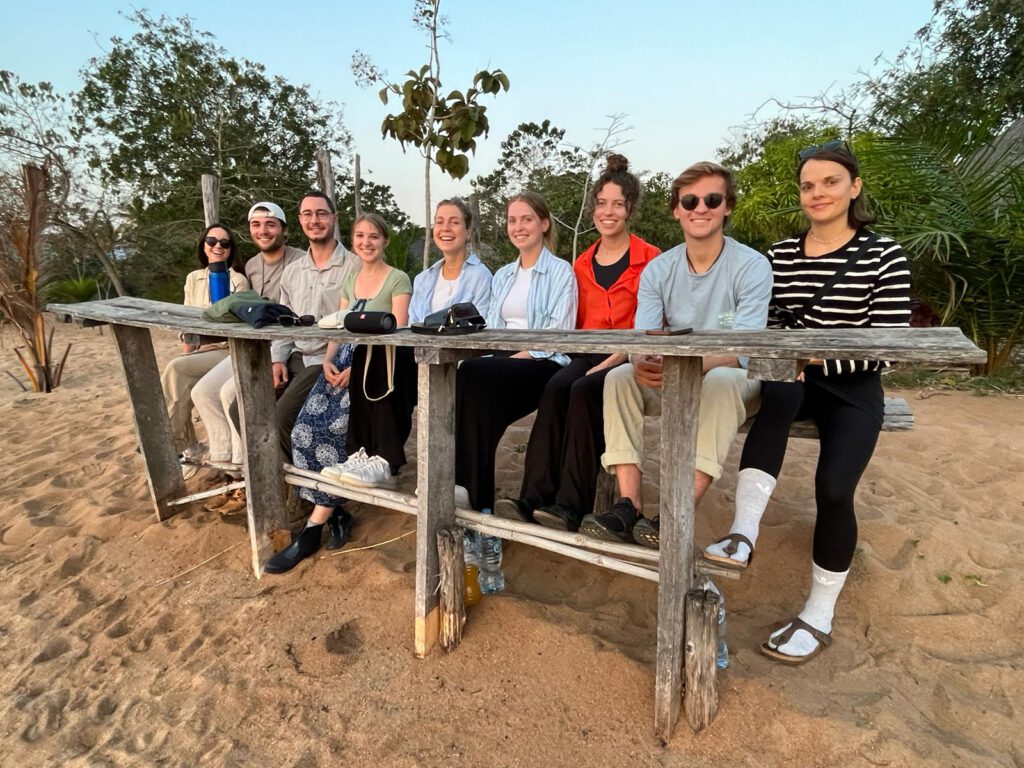
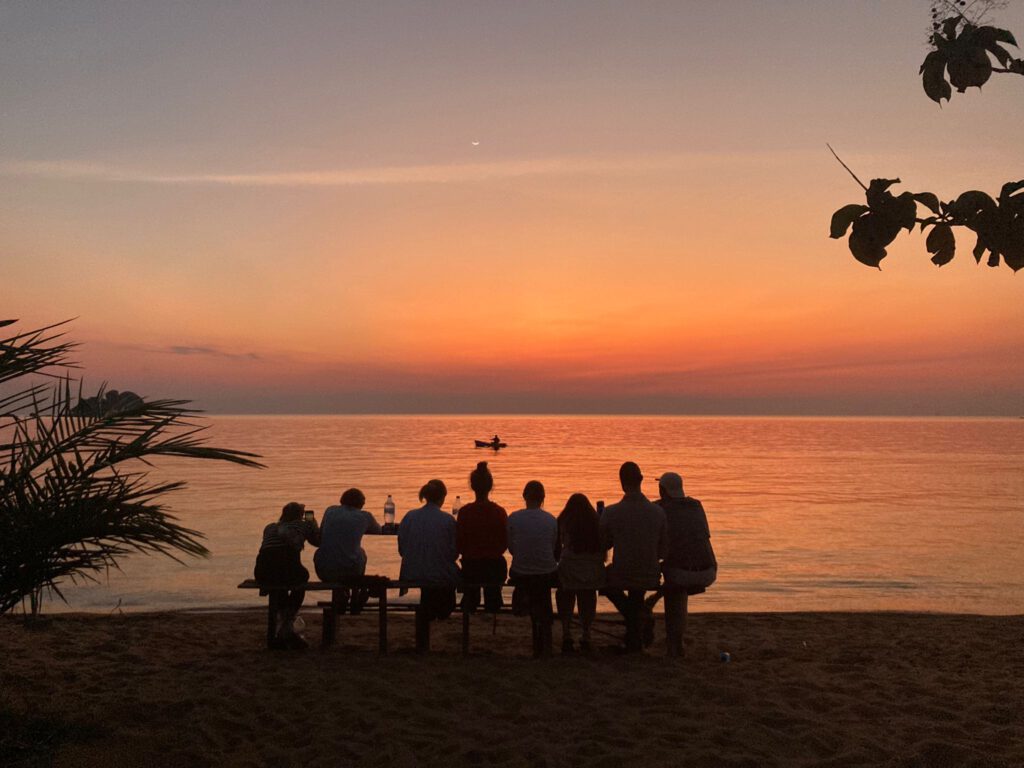
A Distinguished Visitor
This Sunday, the village of Liuli is honored by a visit from the Bishop of Ruvuma. The occasion includes a confirmation ceremony, and the service stretches from 8 a.m. to 1 p.m. — an intense experience, even for someone like me, the daughter of a priest and a pastor. While we understand very little of what is being said, the choir's beautiful singing keeps us engaged. After two or three hours, the confirmands line up before the bishop to receive his blessing. After the ceremony, the bishop addresses us directly and calls Tim to the altar. Tim takes the opportunity to present our organization again and invites the entire village to visit the new dental practice at the hospital (more details on the Dental Project can be found hereToward the end of the service, the bishop receives gifts from the community. The first and most striking is a fully grown live goat, followed by a live chicken and a carton of eggs. The procession, with the bishop leading, marks the conclusion of the service. We are then invited to lunch with the bishop and other regional clergy, all of whom are men. The meeting is formal, much like our previous visit to the bishop's office in Songea, which limits discussions about specific hospital projects. The bishop once again expresses his gratitude for the work of our association, and Tim thanks him for the excellent cooperation and the warmth with which we are welcomed. At one point, the bishop requests input from "the ladies" but adds, "if you’ll allow it, Dr. Tim." Tim, a firm believer in gender equality, is visibly uncomfortable. Seizing the moment, I respond firmly but politely, "He is not in a position to allow." The bishop laughs warmly, and the moment passes on a positive note. Despite the remark, I find the bishop to be very friendly and respectful. However, it remains important to assert myself confidently and make it clear that competence is unrelated to gender.
